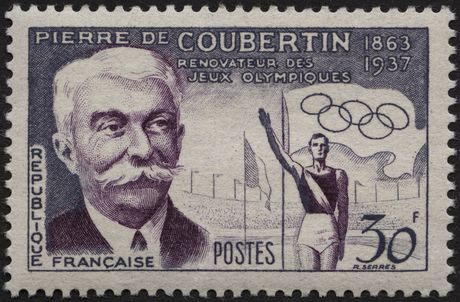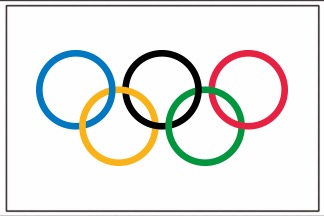
Baron Pierre de Coubertin was a boy when France lost the Battle of Sedan in 1870 in the Franco-Prussian War. Emperor Napoleon III was captured by the Germans, along with several French soldiers. The boy grew up in the shadow of the shame of the terrible defeat.
De Coubertin believed that France might have lost the battle and the war because the French soldiers were too physically unfit and feeble to fight properly. The thought occurred to him that an international festival of athletics might be just the thing to encourage his countrymen to get fit.
De Coubertin also happened to read how an English scholar called Richard Chandler a hundred years earlier, while on a tour, had chanced upon a site in Greece where the ruins of Olympia had existed. Greece was at that time under the rule of Turkey, and there was no way to investigate the site. That was in 1766. Two years later, a German historian, Winkleman, tried to follow up on Chandler’s discovery. Unfortunately, he was murdered by bandits on his way to the site. Another hundred years later, Ernst Curtius, a German professor, did succeed in starting excavations at the site. All this had remained in young de Coubertin’s mind.
In 1886, he was on a tour of England. He had great admiration for the British for their love of sport. Football, which had its beginnings in Britain, was already a popular sport in the public schools in England. De Coubertin was taken to one of these schools, the Rugby, where Thomas Arnold was headmaster from 1828 to 1842. The Frenchman had a lot of regard and respect for Arnold, as he had encouraged sport as part of the school curriculum. De Coubertin visited Arnold’s tomb in the school chapel where he is reported to have had a vision, which finally decided what his mission in life would be – revival of the Olympic Games.
On his return to Paris, he convened a conference to discuss the start of an international Olympics to be held once in four years. Sports lovers from 12 countries participated in the conference, while 21 other countries sent messages supporting the proposal. The conference was a big success. It was decided to form an International Olympic Committee.
De Coubertin was made its Secretary. It was agreed that the first modern Olympics Games would be held in Athens in 1896. It was inaugurated on April 6. He was voted President of the Olympic Committee prior to the Games. De Coubertin’s dream was fulfilled. In 1928 he was awarded the Nobel Peace Prize. He passed away in 1937.

De Coubertin’s contributions to the Olympic Games include the Olympic symbol – a set of five interlocking rings (1913). Each ring represents a continent. This symbol, displayed on a white background. became the Olympic flag (1914). As there was no Games during the First World War, the flag was flown for the first time at the 1920 Antwerp Games.
Chandamama July 2004
Image of French postage stamp (1956) honouring Baron Coubertin (1863-1937) courtesy https://storage.canalblog.com
